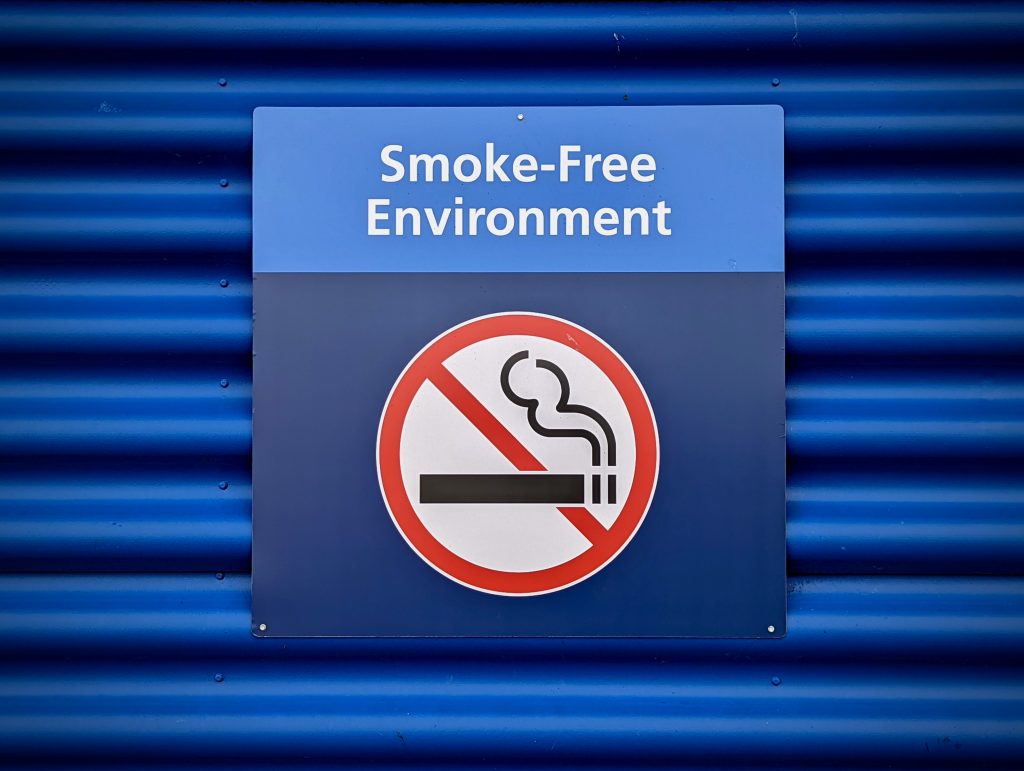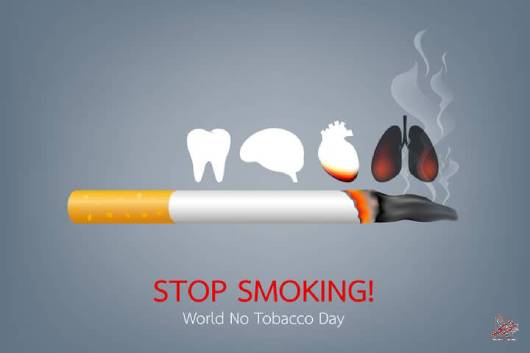
World No Tobacco Day: Promoting a Smoke-Free Future
World No Tobacco Day is an annual global event observed on May 31st to raise awareness about the health risks associated with tobacco use and advocate for effective tobacco control policies. This initiative was established by the World Health Organization (WHO) in 1987 to highlight the dangers of tobacco consumption and encourage individuals, communities, and governments to take action against this deadly addiction. In this article, we will explore the significance of World No Tobacco Day and delve into the various efforts made to combat tobacco use worldwide.
1. The Global Tobacco Epidemic

Tobacco consumption remains one of the leading causes of preventable deaths and diseases globally. According to the WHO, tobacco kills more than 8 million people each year, with over 7 million of those deaths attributed to direct tobacco use, and around 1.2 million caused by non-smokers being exposed to secondhand smoke. This devastating toll includes both active smokers and those affected by the adverse effects of tobacco.
2. The Health Hazards of Tobacco Use
Smoking is a major risk factor for various life-threatening conditions, including lung cancer, heart disease, stroke, chronic obstructive pulmonary disease (COPD), and numerous other respiratory illnesses. Tobacco use also increases the likelihood of developing oral, esophageal, pancreatic, bladder, and kidney cancers. Moreover, smoking during pregnancy leads to complications such as low birth weight, preterm birth, and stillbirth.
Secondhand smoke is equally harmful, with non-smokers exposed to its toxic chemicals facing an increased risk of developing respiratory infections, asthma, cardiovascular diseases, and lung cancer. It is crucial to understand that tobacco not only affects the individuals using it but also harms those in close proximity, making it a public health concern that demands urgent attention.
3. The Importance of World No Tobacco Day

World No Tobacco Day acts as a catalyst for change. Offering an opportunity to educate the public and mobilize efforts towards reducing tobacco use worldwide. By focusing on a specific day, the campaign raises awareness, promotes advocacy, and encourages individuals to take action against tobacco addiction. It serves as a reminder that every day should be a smoke-free day and highlights the importance of creating a tobacco-free environment for the benefit of current and future generations.
4. Key Themes of World No Tobacco Day

Each year, World No Tobacco Day revolves around a specific theme that addresses relevant issues and challenges in tobacco control. These themes aim to inspire action and highlight the diverse aspects of the tobacco epidemic. Some notable themes from previous years include:
- “Tobacco: Deadly in Any Form or Disguise” (2006): This theme emphasized the harms associated with all forms of tobacco consumption, including cigarettes, cigars, smokeless tobacco, and waterpipe smoking.
- “Tobacco and Heart Disease” (2018): This campaign focused on the links between tobacco use and cardiovascular diseases. Raising awareness about the increased risk of heart attacks, strokes, and other heart-related conditions.
- “Tobacco Breaks Hearts” (2019): This theme explored the impact of tobacco on heart health and aimed to educate individuals about the relationship between tobacco use and heart diseases.
5. Global Efforts in Tobacco Control
World No Tobacco Day plays a vital role in mobilizing global efforts to combat tobacco use. Numerous initiatives have been undertaken by governments, NGOs, and healthcare organizations to address this critical public health issue. These efforts include:
- Policy Changes and Legislation: Governments around the world have implemented various measures to control tobacco use. These include bans on tobacco advertising, graphic warning labels on cigarette packages, increased taxes on tobacco products, and restrictions on smoking in public places.
- Smoking Cessation Programs: Numerous smoking cessation programs and services have been established to help individuals quit smoking. These programs provide support through counseling, medication, and behavioral therapies, helping smokers overcome their addiction and adopt healthier lifestyles.
- Public Awareness Campaigns: Public awareness campaigns play a crucial role in educating the general public about the dangers of tobacco use. These campaigns utilize various media platforms, including television, radio, social media, and print advertisements, to disseminate information about the health risks and promote quitting tobacco.
- Youth Prevention Programs: Targeting youth is essential in preventing the initiation of tobacco use. Schools and community organizations often implement programs that educate young people about the harmful effects of smoking. And equip them with the necessary skills to resist peer pressure and make informed decisions.
- International Cooperation: The WHO collaborates with governments, international organizations, and civil society to promote tobacco control globally. Through initiatives such as the Framework Convention on Tobacco Control (FCTC). Countries work together to develop and implement effective tobacco control policies and share best practices.
6. The Role of Individuals in Tobacco Control
While governments and organizations play a significant role in tobacco control, individual action is equally important. World No Tobacco Day encourages individuals to take personal responsibility for their health and the well-being of those around them. Here are some steps individuals can take to contribute to tobacco control:
- Quit Smoking: If you are a smoker, make a commitment to quit. Seek support from healthcare professionals, join smoking cessation programs, and utilize available resources to increase your chances of success. Quitting smoking not only benefits your health but also serves as an inspiration to others.
- Support and Encourage Others: If you have friends or family members who smoke. Offer your support and encourage them to quit. Be understanding and non-judgmental, and provide information about available resources that can assist them in their journey towards becoming smoke-free.
- Advocate for Tobacco Control Policies: Stay informed about tobacco control policies in your country and advocate for stricter regulations. Write to your elected representatives, participate in public consultations, and join local or national organizations working towards tobacco control. Your voice can make a difference in shaping policies that protect public health.
- Create Smoke-Free Environments: Whether at home, in your car, or in public spaces, create environments that are free from tobacco smoke. If you are a business owner, consider implementing smoke-free policies to protect the health of your employees and customers.
- Educate Others: Take the opportunity to educate your family, friends, and community members about the dangers of tobacco use. Share information, engage in conversations, and raise awareness about the benefits of living a smoke-free life.
Looking Ahead:
World No Tobacco Day serves as a reminder of the global tobacco epidemic and the urgent need for action. While progress has been made in tobacco control efforts, there is still much work to be done. Governments, organizations, and individuals must continue to collaborate and invest in comprehensive strategies that address tobacco addiction, protect public health, and create a smoke-free future for all.
By raising awareness, supporting cessation efforts, and advocating for effective policies. We can contribute to reducing the devastating impact of tobacco on individuals, families, and communities worldwide. Let us embrace the spirit of World No Tobacco Day every day. Working towards a world where tobacco-related diseases are a thing of the past. Together, we can make a difference and build a healthier, smoke-free future for generations to come.


Comments (0)